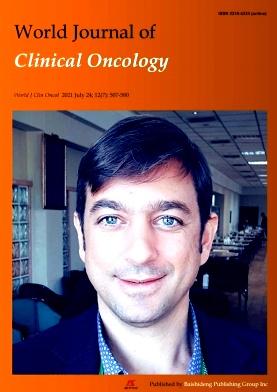食管癌病理分类与分期的深度学习模型。
IF 3.2
Q3 ONCOLOGY
引用次数: 0
摘要
这封信对Wei等人应用Wave-Vision Transformer进行食管癌分类的研究进行了评论。强调其优越的准确性和效率,我们讨论了其潜在的临床影响,数据集多样性的局限性,以及对可解释的人工智能的需求,以提高病理和个性化治疗的采用。本文章由计算机程序翻译,如有差异,请以英文原文为准。
Deep learning models for pathological classification and staging of oesophageal cancer.
This letter comments on Wei et al's study applying the Wave-Vision Transformer for oesophageal cancer classification. Highlighting its superior accuracy and efficiency, we discuss its potential clinical impact, limitations in dataset diversity, and the need for explainable artificial intelligence to enhance adoption in pathology and personalized treatment.
求助全文
通过发布文献求助,成功后即可免费获取论文全文。
去求助
来源期刊

World journal of clinical oncology
ONCOLOGY-
自引率
0.00%
发文量
585
期刊介绍:
The WJCO is a high-quality, peer reviewed, open-access journal. The primary task of WJCO is to rapidly publish high-quality original articles, reviews, editorials, and case reports in the field of oncology. In order to promote productive academic communication, the peer review process for the WJCO is transparent; to this end, all published manuscripts are accompanied by the anonymized reviewers’ comments as well as the authors’ responses. The primary aims of the WJCO are to improve diagnostic, therapeutic and preventive modalities and the skills of clinicians and to guide clinical practice in oncology. Scope: Art of Oncology, Biology of Neoplasia, Breast Cancer, Cancer Prevention and Control, Cancer-Related Complications, Diagnosis in Oncology, Gastrointestinal Cancer, Genetic Testing For Cancer, Gynecologic Cancer, Head and Neck Cancer, Hematologic Malignancy, Lung Cancer, Melanoma, Molecular Oncology, Neurooncology, Palliative and Supportive Care, Pediatric Oncology, Surgical Oncology, Translational Oncology, and Urologic Oncology.
 求助内容:
求助内容: 应助结果提醒方式:
应助结果提醒方式:


